Cuba Communist Accounting I: Cuban Communist Economy Today and USA Traveler Tips
Part of the Cuba Communist Accounting Series:
I Cuba Communist Economy Today
II Particular Accounting – Hot Convertibles, Top Professions, and Trickle-Around Economics
III Taxing Casa Particulares and Cubans
IV Cuba Prices from Housing to Bread to Ration Book
V Traveler Memoirs of Econ-o-Caphony, Anachronism, and What’s Good is Bad
The Rapidly Changing Cuban Economy
Casas y Mas (Houses and More)
Intro to Casa Particulare$
USA Traveler Tips: lodging, Wi-Fi, Currency, Travel, Cigars & Rum
Intro
Salsa music paints the background and sun penetrates the windowless living room – as horns, televisions, and fifty year-old cars shift along the narrow bumpy streets creating a delightful cacophony. Smells of diesel fuel, fried plantains, and fresh coffee dance together. My host, Tony, walks along the rooftop fixing this and that, while his shirtless father in-law sips ron (rum). I too ditch the shirt and now sip delicious coffee. The capital building dome is barely in my view from the old center city of Havana, Cuba. One week ago I was dancing mid-calle (street) at mid-night, bringing in the New Year, 2017, while upper balconies dumped water from above to cleanse past year sins. Fidel is dead and the economy is alive, in strange and particular ways.
About
This writing is one mostly uneducated accountant’s perspective, John Gillingham, CPA, traveling to Cuba in January 2017, for a mere two weeks and cannot be relied upon as advice, but rather a work of perspective and fiction – as Cuba has already changed. USA travel policy has changed. Fact-check everything and use your resources for the most current laws, exchange rates, and happenings in this fascinating country. It was not the music, the storied streets, or the old cars themselves that fascinated me… but rather the soft economic and accounting scripts weaving through every street, transaction, and even interaction. It is through this series I attempt to document this and provide inspiration – especially in light of recent travel restrictions – I am newly inspired to share my thoughts and experiences with the world. Stay tuned for the next installments covering pricing data, the tourist economy, ration-based economy and more than a few perspectives from the author.
This series is dedicated to AccountingPlay.com which funded my educational New Year Cuban travels. Checkout the site and register for free to learn accounting and taxes, freshly launched from Bali, Indonesia.
See more pictures and my travel itinerary (Songline) on my friend’s platform to share travel recommendations and favorite places. Visit www.songline.co and join the private beta today.
The Rapidly Changing Cuban Economy
Cuba… “is like a communist country… man…” and it fascinates me as an accountant and observer of the global economy. This (Cuba) is a world of vast pricing vs wage disparities, communist control and rationing, and emerging music fusions. It is a cacophony of sounds, tastes, and global currencies. Imagine a culture where a few years back you could not even sell your house and to operate independently of the government is illegal. This economic system - past and instate is the backbeat of the music, food, and friendly culture. And it is a system of stringent government repression of growth – forcing some families to live in crumbling sardine cans. Now with changes in motion, no longer does everyone “have nothing” and so the economy will and has already started to change.
My “analysis” or rather, first-hand discussion of Cuba is simply a limited observation, backed with data of a very limited scope (supermarket prices). Speaking to locals, unnamed, I have gathered that “no one knows nothing of the true workings of the economy.” It is a mix as rich as that of the ethnic racial diversity of this anomalous island. Add colonialism wealth of the few, past slavery, mid-twentieth century boom, to post war communism and rationing… mix Miami proximity and Russian support with more than a dash of American embargo and influence… you get just some of the ingredients driving the Cuban economy and people. Join the mix and add any insight below, your contributions are greatly appreciated.
Particular Ways: Casas y Mas (Houses and More)
The government owns “everything in Cuba” per Tony from hotels and medical clinics to food distribution. But recently in the 2000s, the government stronghold loosened amidst the collapse of the USSR and related food subsidies and more recently, the passing of the power torch to Raul Castro. The majority of the Cuba economy for nearly four decades had been supported by communist Russia and banned from trade with the United States. Only in recent years could Cubans purchase a mobile phone, access the internet, or even acquire a new car.
For only about two years were Americans able to easily obtain permission to visit this storied island and I was an early bird 2017 visitor. At present the regulations are already changing again. The Cuban loosening allows for semi-private businesses – referred to as particulares in Spanish, where Cubans can host foreign paying guests in casa particulares and open other semi-private businesses easily taken for granted in other countries, such as restaurants. ¡Viva la Revolución!
Cuban citizens generally make very little money, in the range of forty US dollars a month – yes only forty a month. Government work seemingly pays the lease compared to the “particular” economies and the range of government pay does not vary greatly. It is possible to find a government employee stocking cans at the food commissary not making that much less than a newly appointed doctor. The new introduction of semi-private economies introduces a further strange twist on wealth and wage disparity very unique to the island.
The most profitable Cuban guest houses and convertible drivers can make as much as $1,000 a more a month. This is quite a disparity for the few who actually have paid jobs. In the words of more than a few Cubans I talked to, “most have nothing.” Those who have “nothing” though, do have access to government services such as libraries, medicine, school, and most intriguing to me – rations (see IV Cuba Prices from Housing to Bread to Ration Books). Every Cuban is entitled to scant monthly rations of rice, beans, oil, sugar, coffee, eggs, and other items for special needs recipients (babies, diabetics, etc…). Generally vices are made cheap at the lower end of the market – such as government rum and cigarettes.
Rarely if ever, do I see a person sleep on the streets. Begging is generally non-existent, save for some males trying to hustle up pesos for some new shoes or warming up a tourist for some bigger, likely falsified need, such as an operation for his wife (should be covered by the state medical care right?). Occasionally I was asked for my pants, shirt, and hat – two of which items I did end up giving to the block party on one occasion. Streets are pretty darn clean and safe – certainly much more so than downtown San Francisco. Classic cars from the 50s run the calle (road) – American Fords and Chevys – along with a smattering of Russian-made Ladas cars and trucks. A variety of non-American newer cars also pepper the streets – surely a new introduction of the Raul Castro era.
Intro to Casa Particulare$
Casa particulares are rather simply local Cuban family-run operations who open their homes to guests for anywhere between $20 and $40 USD a day… a similar monthly salary for a DOCTOR. Odalis, my host mother, was paid $20 a month as a library administrator. Tony, her husband, has an “important doctor” as a neighbor and exclaims that after putting in a balcony, it was only painted five years later due to lack of funds. Building in Havana has been at a near halt since the installation of the Castro regime post-revolution around the year 1960. Typically three generations of Cubans live in a modest apartment: Grandma / Pa, Mama / Gran, Kids, and often an aunt and or uncle. On average, the apartments have just enough – a stove, water, electricity, and bathroom. The nicest rooms in the house are cleared out when the paying guests arrive. The lodging alternative to casa particulares for tourists are government hotels that can cost anywhere from $100 to $500 a night. Airbnb may provide some in-betweens, but it is questionable how anything not a Casa Particular or official hotel sits within the law. More on how these entities operate from a human and tax perspective in: Cuba Communist Accounting II: Particular Accounting – lodging, rationing, and taxes.
USA Traveler Tips: lodging
Casas particulares offer an opportunity for affordable lodging and opportunity for a miniature cultural exchange. A key will be provided, but the chance it will be used is unlikely, as it seems there is always someone awake or around. Expect a rather uncomfortable bed for western standards and clean, hospitable surroundings. Breakfast may be $5 extra a person and offer plenty of food. Other meals may be optional. Government hotels can be rather terrible in the $70 a night range if outside of. Expect Havana hotels in the $100 + a night range, sometimes offering coveted Wi-Fi.
USA Traveler Tips: cell and Wi-Fi (let it go)
Wi-Fi is accessed via a special card that you can pay for at Wi-Fi hotspots (generally hotels). Speed is decent and the card limits time of use, rather than bandwidth to my knowledge. Expect about $5 for an hour or less if time is purchased in bulk. Cellular sim cards can be a consideration to obtain – ask locals – but be sure to be in compliance around any restrictive laws. I recommend starting your WiFi quest at the Hotel Iberostar Parque Central, in downtown Havana. Here you will find a welcoming staff and second floor help desk dedicated partially to getting us online. Enjoy the surroundings over one drink and skip the hotel stay unless you have some serious queso (cheese in Spanish) to spend.
USA Traveler Tips- Currency
Bring cash, lots of cash, but unless you want to it is possible to spend modestly. For only two or so years have American Visa and Master Cards been authorized to function in Cuba and I have no idea where they actually… function. Currency exchange is typically fairly similar across banks and hotels, with private individuals sometimes offering rates 5% more or less favorable. Two systems of parallel currencies exist: the “CUC” which is generally designed to float with the US currency on a one to one basis, with a 10% discount (unfavorable to American travelers) and some kind of build in 3% commission. Note that these figures are wildly estimated.
The 10% discount is a kind of built-in penalty of sorts, so that supposedly Americans are penalized 10% fee when they change US dollars to the CUC. So in theory, if you are an American traveler you can bring Euros or Canadian currency to exchange to avoid this 10% hit. The reality for most USA travelers, however, is that obtaining, say, Euros first within the USA likely has a 3%+ cost to it as well. So unless you are spending big, it is probably just as well to take dollars and eat some cost. Note that most places can be convinced to take us dollars in a pinch for a home stay or car ride. How the discount works and surely lack free currency markets work in actuality is a topic of interest, but sadly out of scope of this article.
The CUP is an odd one mostly for the locals, which is equivalent to 1/24 for 1 CUC*** (Search for current rates). My guess is that government employees are paid in CUP and both bank rates are highly regulated (do not trade and float freely). Exchanging currency for foreigners in the street or otherwise is officially illegal to my knowledge. So do not expect the ubiquitous money changing kiosks of other-world travel destinations. Western Union exists “somewhere” and bank wires are also possible to arrange. If uncomfortable carrying my minimum recommended daily travel budget of $50 a day, then plan ahead. Have a backup plan in case you decide to fill that suitcase full of pricey Cuban cigars or something bad happens.
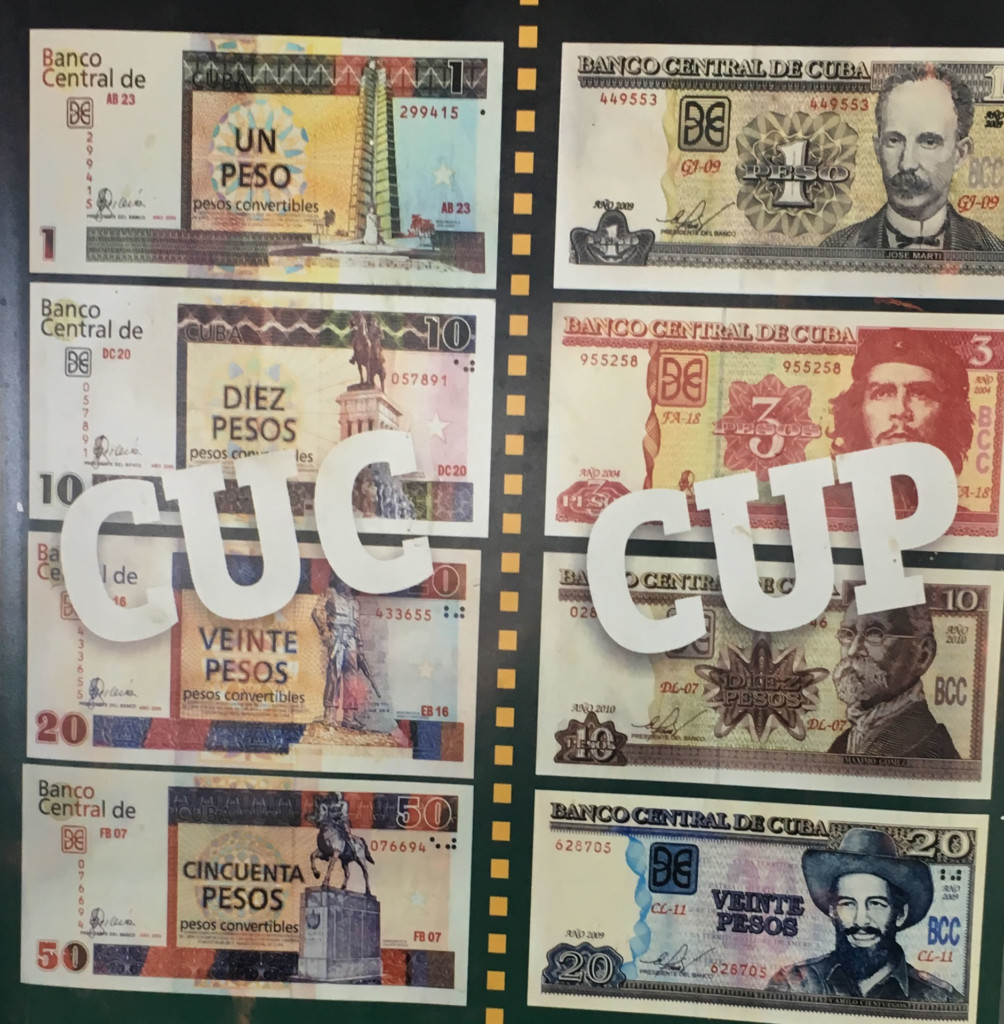
USA Traveler Tips: transportation
Cars are coveted items in Cuba with many being 1950s and 1960s gems, maintained to travel ad-infimum, albeit at relatively low speeds. Expect your airport trip to be $30 USD or less, one way (burn on arrival) and the same when you return. Car sharing is common so team up with other tourists so that you form a “Collectiva” in order to share the cost. Oftentimes long distant bus tickets are similar in price to a collective, but offer a more consistent experience (a comfortable seat). Renting a car is possible, but expensive – in the $50++ range a day.
USA Traveler Tips: Cuban cigars and rum
For the first time in a very long time, Cuban cigars are legal for United States travelers (check current rules and regulations). Cuba has varying restrictions on what can be taken out of the country without extra taxes and the USA has varying restrictions on what you can take in. At the premier growing region of Valle de Viñales and Pinar del Río, I conducted some very important cigar rolling, smoking, and purchasing research to share. In the following list:
- Never, ever buy cigars from the street or believe any story of a special discount.
- Cigars are expensive, so do your research ahead of time. Many of the major brands are readily available in duty-free stores around the world
- Consider local hand rolls with honey inside* – or simply dip some honey on the tip of your average cigar to enhance the experience, “that is what Fidel did”
*Mine molded… so consume quickly
- Consider local made cedar cigar holders to stuff full of cigars you like, for gifts
- Brand names are also names describing the type of smoke, at least in the Viñales region, the harshness or richness of smoke from lightest to strongest goes like this: Romeo & Julieta, Montecristo, Cohiba – this also corresponds to the leaves on the plant
- Supposedly Castro was asthmatic and so, organic small production (non-government machine-rolled) may provide a more “healthy and enjoyable” experience

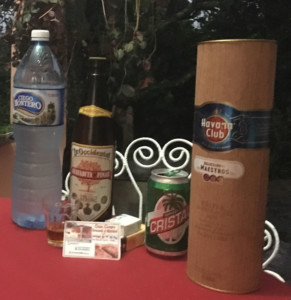
***Post Cuba Update*** The real Cubans (cigars that is) are expensive, but enjoyed with the proper drink can be an unparalleled experience that cannot be duplicated with something else (cheap). I recommend attending a smoking room, talking with the real government (yes government) experts and trying the best first. From there you can dabble in the farm-purchased ones. Follow the President Clinton’s adage and do not inhale. Perhaps like Italian wine – it is possible to find cheap and yummy drink direct from the farm, but it is best consumed within a certain timeframe. Make careful choices how you plan on gifting this Cuban commodity.
The tobacco farm I visited told me that 90% of the production was sent to government factories for automatic rolling. They were only able to produce Montecristo-type of cigars, as that is what “Fidel Wanted.” Each cigar which tobacco was cured with vanilla, honey, and Cuban love was hand rolled and sold for about $4.60. Similar big named cigars with government store prices could crawl to $15 or more. Being out of cash (atm card did not work), I sprung for the hand rolls from Grandpa of my Casa Particular for 1 CUC, or a $1.15 US (check rates). Of course, likely most of what I heard was surely embellished and I would recommend doing your research prior.
As with Cigars, I would suggest doing some Rum research prior to coming. Sadly (unless you an alcohol-prohibitionist) the government severely restricts the production of Cuban alcohol. The result of restriction is very limited production of the good stuff and mass production of the cheap stuff. Consider distinct Cuban rum such as Guayava, which contains a small guava at the bottle bottom, which I have been told can turn the most relaxed person loco or loca. Easy to drink, Guayava is honey infused and best enjoyed without adulterant. Expect such a delight to be around $25 and other mass produced delights such as Havana Club Selección de Maestros Triple Barrel Aged Rum in the $50 or so range. Cuban goods do have a certain cache in some US circles, so choose wisely who can appreciate the gift.
Next: II Particular Accounting – Hot Convertibles, Top Professions, and Trickle-Around Economics

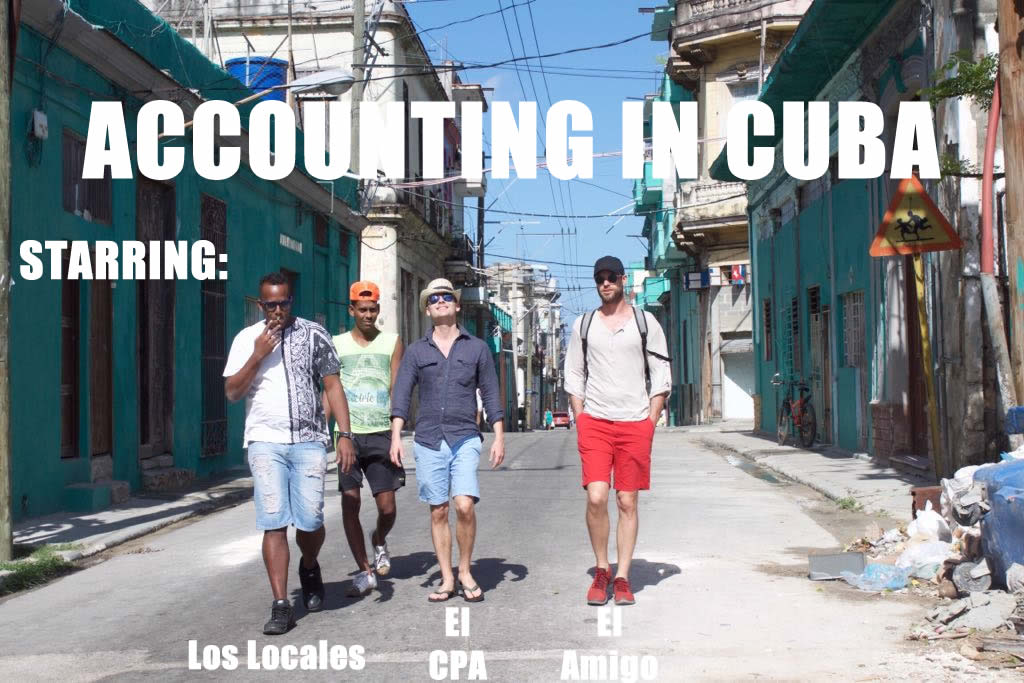
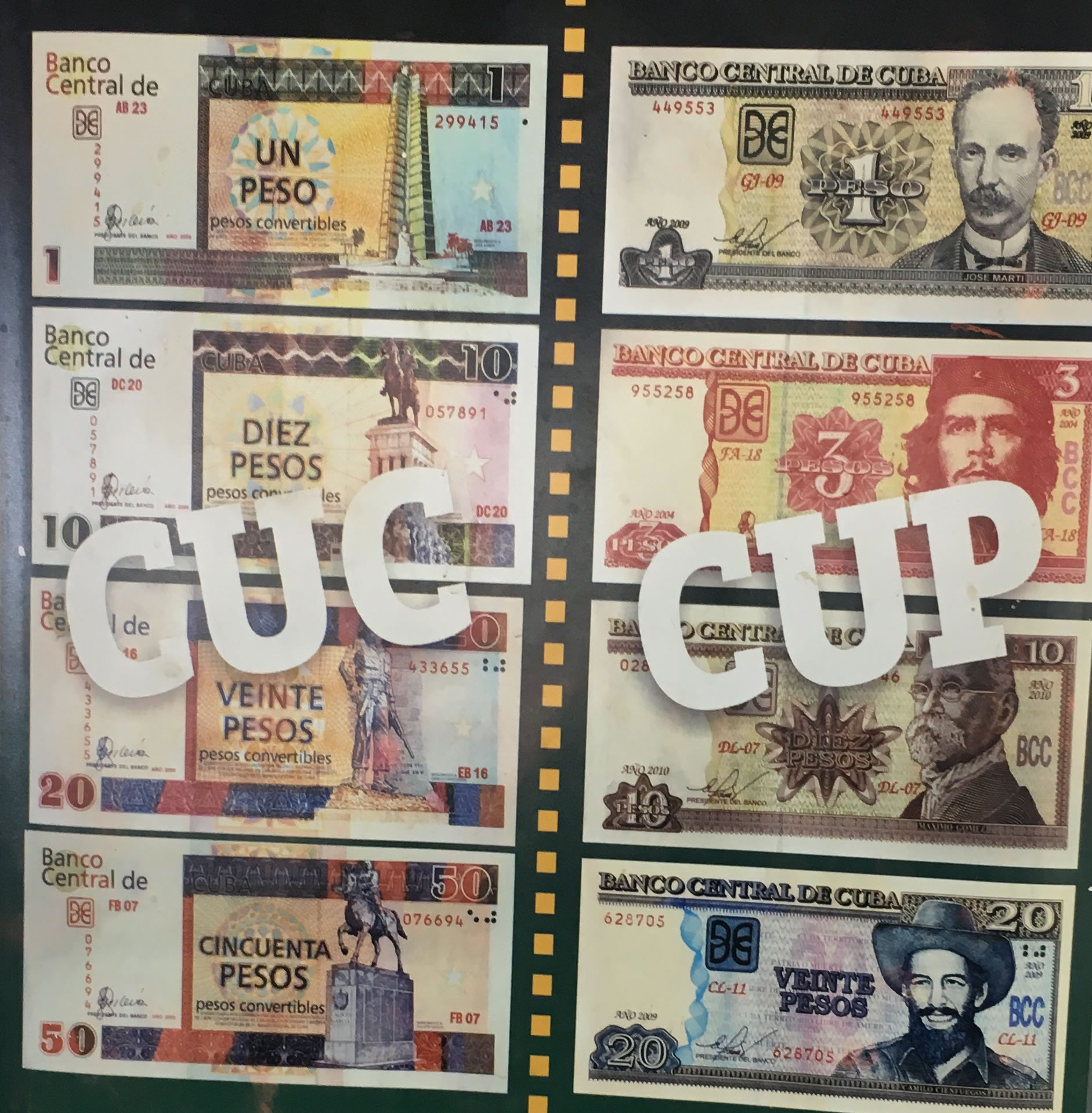
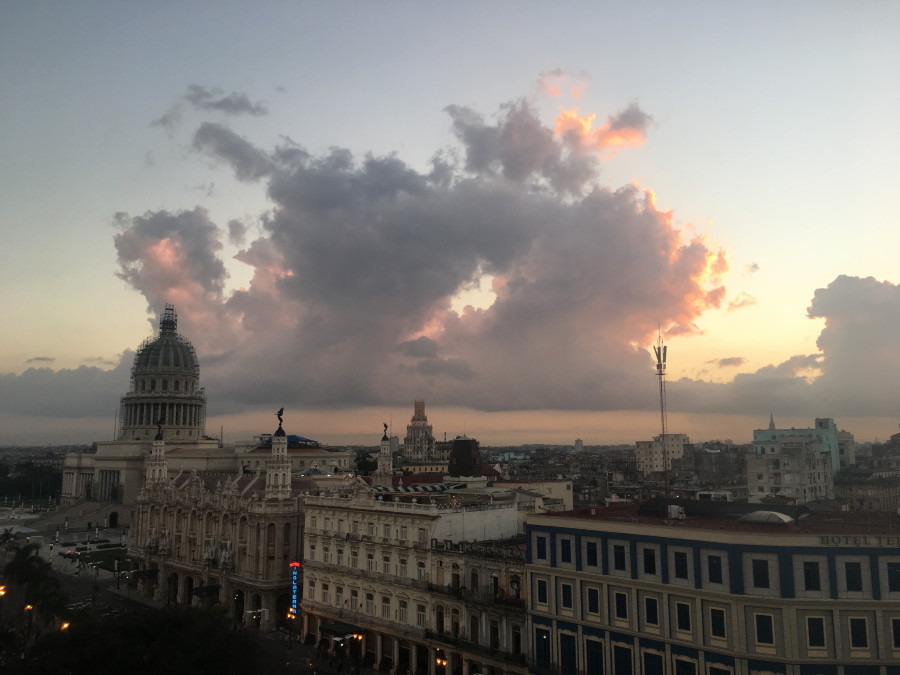
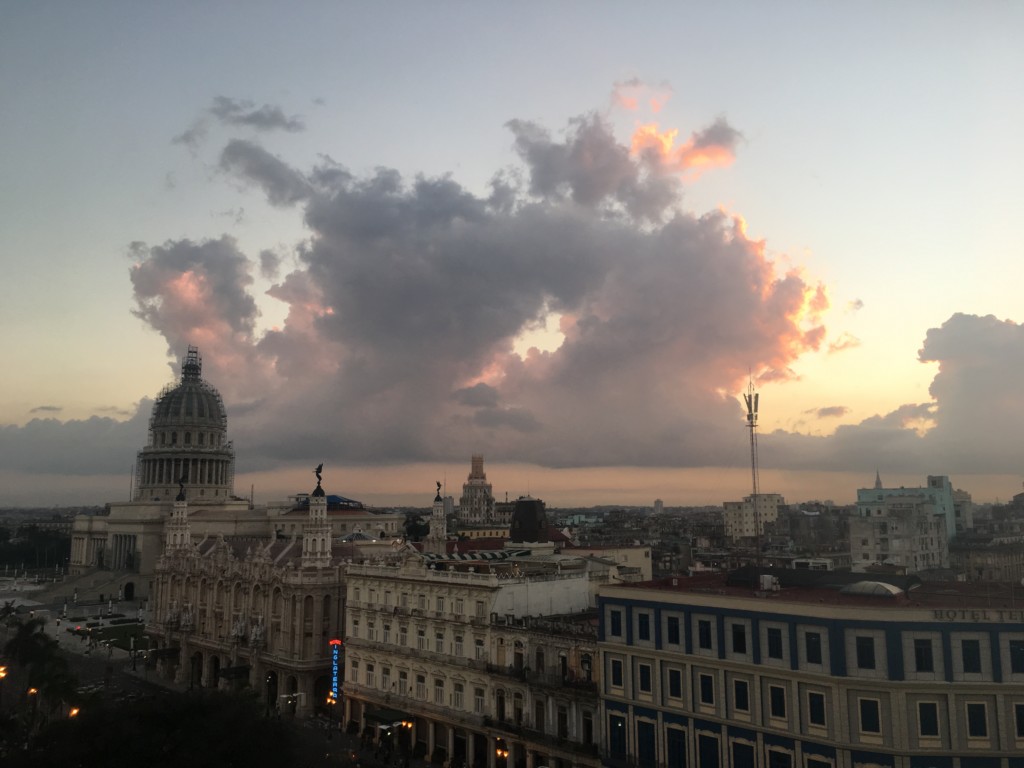


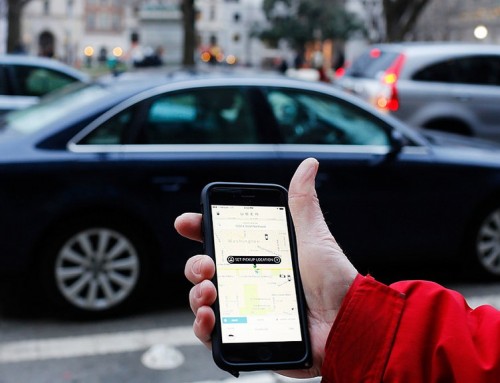
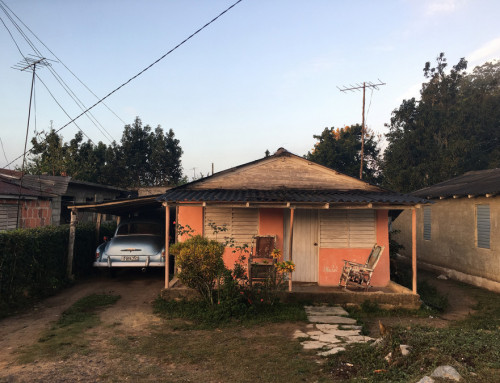
Oh, and great article though I was expecting to read about accounting standards in Cuba – an oxymoron of sorts. Thanks.